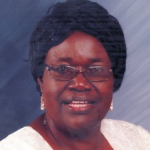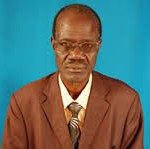Egerton University
Host department: Department of Curriculum, Instruction & Educational Management
Academic calendar: October Semester and May Semester
Application deadline: July 31
Point of contact/where enquiries can be made:
MRPP Programme Academic Coordinator
Okeremark836@yahoo.com
+254- 721 462 059
Message from the Vice-Chancellor

Professor Rose Mwonya, Vice Chancellor, Egerton University
The MRPP programme is hosted in the Department of Curriculum, Instruction & Educational Management. It is coordinated by Professor Mark Okere who is a specialist in multi-method social science research. MRPP is a multi-disciplinary programme, and therefore, the associate teaching staff come from various departments of the University.
MRPP was launched at Egerton University in October, 2013. The first cohort comprised eleven (11) students with backgrounds in security management, economics, business administration, education, theology and agricultural economics. The second cohort (2015, class) are also 11 in number, with backgrounds in history, environment, sociology, education, agribusiness, project management and agriculture.
The MRPP lecturers teach using new pedagogies such as e-case, case study, role play, debate among others. During the training, students acquire advanced knowledge in research and public policy, skills such specific techniques of collecting and analyzing data and experiences by participating in workshops, field experience and group projects.
The students are also taught by staff from other partner universities. For example we been visited by scholars from Ibadan, Jos, Mzumbe and Maseno universities as part of staff exchange programme. Our lecturers have also visited Lagos, Ibadan and Jos universities.
Message from Programme Coordinator

Prof. Mark I. O. Okere, Programme Coordinator
The Master of Research and Public Policy (MRPP) is a new, specialized graduate programme designed and implemented by 12 participating universities through a “ collaborative “ process. It is supported by Partnership for African Social and Governance Research (PASGR), a Pan- African organization based in Nairobi. Collaborative means 12 partner universities and PASGR working together on the MRPP from conceptualization to design, start and implementation. The MRPP combines social science research training with public policy to attract those who wish to be researchers and future academics as well as those who wish to be policy practitioners.
The following 12 Universities from 7 countries across Africa form the MRPP network:
- University of Botswana, Botswana
- University of Ghana, Ghana
- Egerton University, Kenya
- Maseno University, Kenya
- University of Jos, Nigeria
- University of Lagos, Nigeria
- National University of Rwanda, Rwanda
- University of Sierra Leone, Sierra Leone
- University of Dar es Salaam, Tanzania
- Mzumbe University, Tanzania
- Uganda Christian University, Uganda
- Uganda Martyrs University, Uganda
Programme Objectives
It is expected that MRPP would generate a cadre of professionals able to work in a wide variety of settings including but not limited to: government bodies, think tanks, civil society organizations, regional and international organizations, media and universities.
Three types of competencies are targeted:
i) Common competencies for all students that enable them to understand different conceptual and methodological approaches to social science research; and appreciate various theoretical and conceptual approaches to the formation and analysis of public policy issues;
ii) Capacity to design and execute policy oriented research for those in academia and research organizations; and,
iii) For those in policy development, management and implementation, competencies to apply policy analysis tools to key public policy issues and utilize evidence based research results.
Admission Requirements
To be considered for admission all applicants must meet the following minimum eligibility criteria:
- Masters degree, or,
- An Upper Second class Bachelor’s degree (or its equivalent GPA), or higher; or,
- A Bachelor’s degree of a lower second class, and at least 2 years of work experience in a research or policy field, or a postgraduate diploma.
Course Work:
(a) A mix of uniform course content (common supporting materials and pedagogy across all universities) with localised course content (developed by teaching staff to ensure the programme is contextualised to each country in each university);
(b) An approach to teaching that replaces “chalk & talk” lectures with heavy use of: Participatory learning experiences; interactive teaching tools; group projects and assignments; and, case study teaching.
(c) E- learning materials form an integral part of course delivery and provide an opportunity to bring international practices and experience into the classroom as well as enable students to interact across MRPP universities;
(d) Use of visiting teaching staff and guest lecturers especially policy actors (e.g. from government and civil society, media, etc.) and researchers (e.g. from universities and think tanks); as well as collaboration across MRPP universities (i.e. joint courses, exchanges of teaching staff
Student mode of assessment:
Assessment mechanisms include a combination of:
- Individual assignments;
- Group projects;
- Class presentations;
- Role play;
- Simulations;
- Case studies; and,
- Continuous assessments.